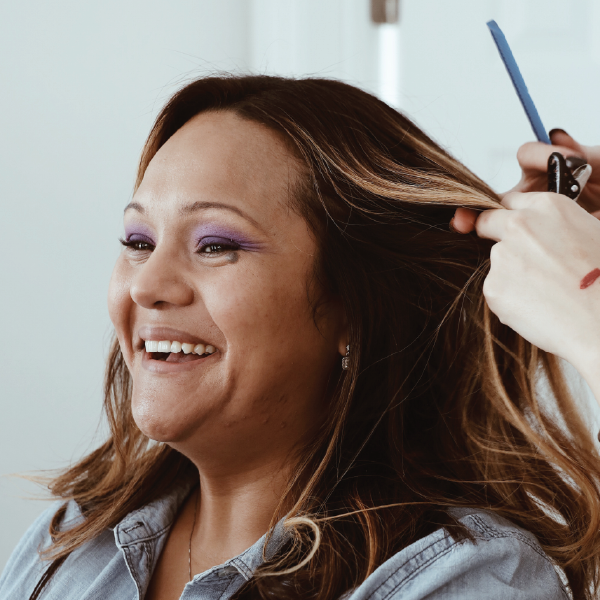

I’ve had psoriatic arthritis for over 20 years, and I’ve lived with psoriasis for more than 50 — along with all the humiliation that can come from a condition many wrongly assume is due to “being dirty.”
Years ago, visits to my local hair salon would result in lectures about not rinsing my shampoo adequately or needing to wash my hair more thoroughly. Despite my attempts to explain that I had psoriasis, people often didn’t understand — or want to.
One stylist even winced in disgust as she parted my hair and flakes fell everywhere. But the one who haunts me most is the stylist who wore rubber gloves the entire time she worked on my hair. She doused everything I touched, and all the tools that touched me, in rubbing alcohol. She asked me condescendingly, “When was the last time you washed your hair? You have so many flakes because you’re a dirty person.”
I wanted to die. It felt like it was the end of the world. I stopped going to salons for several years, unable to bear the embarrassment and shame of having this disease. I felt like a loser and questioned why I had to endure this.
Whenever I got up the courage to try a new stylist, my stomach would twist in knots. I’d try to explain my condition and would preemptively apologize for my psoriasis. I could feel the anxiety building up because I did not know what this person would say or think about me. Living with psoriasis can be embarrassing. Many of us who live with psoriasis cover up and hide it any chance we get.
But you can’t hide when you’re getting your hair done.
It took me years to realize that having psoriasis is not something to be embarrassed about. It’s a condition I didn’t choose. It doesn’t make me dirty; it makes me human. There’s no shame in having a condition beyond your control, and it shouldn’t get in the way of living your life and being happy.
Navigating the Salon: Pro Tips for Those with Psoriasis
I have also learned a few things over the years that might help someone with psoriasis seeing a new stylist for the first time:
- Tell them you have psoriasis when you make the appointment. This is for the benefit of the salon and for your own benefit as well. It might help decrease your anxiety if you know that the salon employees are aware of your condition beforehand. This is also a good time for you to educate them if they don’t understand psoriasis.
- Try and decrease the amount of flakes and plaque that will be visible by using a medicated shampoo before your appointment. Knowing that your psoriasis has just been treated and its appearance will be less severe, might also lessen your anxiety and allow you to relax more while getting your hair done.
- Never allow your psoriasis to embarrass you to the point where you do not tell the stylist that something is hurting you. Too many times I suffered though the high heat from the hairdryer or some chemical that was really burning me. I’ve lost count of the times I have cried myself to sleep because my whole scalp was on fire. You are paying for this appointment and should be able to enjoy it just like everyone else.
- When the appointment is over ask yourself: Did I like this hairdresser? I have learned over the years to be honest with myself. Instead of trying to simply forget about and block out the experience I honestly asked myself if I like the hairdresser and how she treated my scalp. After all, I am the customer.
Thankfully, things have improved over the years. Salons are more knowledgeable about psoriasis. I often go and speak at hair salons and to beauty school students about how important it is to learn about scalp psoriasis, and how to treat someone the way you want to be treated. There are even salons that specialize in dealing with psoriasis on the scalp.
I finally found a place where I don’t have to explain myself or my condition. It put me at ease and allowed me to relax and enjoy the experience just like we all should. Having psoriasis should not decrease our ability to lead a normal life and that includes getting our hair done.
Join GHLF’s HEROES Program
GHLF invites you to make a difference in your community with our FREE and unique program called HEROES (Health Education + Reliable Outreach + Empathetic Support). HEROES is a FREE education and outreach initiative that equips beauty professionals to better support clients living with scalp and other skin conditions and offers people living with skin and scalp conditions helpful resources and information on getting a proper diagnosis, managing symptoms, and becoming an empowered patient. To learn more, visit GHLF.org/HEROES today.





